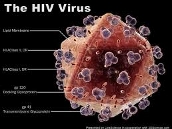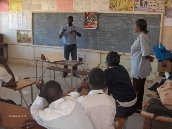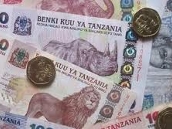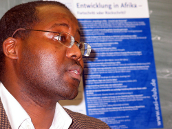Agenda 17 - 23 Juni 2012
Dinsdag 19 Juni

Promotie: Behandel HIV en TBC samen
Dinsdag 19 Juni 2012 14:30
In haar promotieonderzoek analyseerde Sabine Hermans de huidige stand van de HIV- en TBC-zorg in het Infectious Diseases Instituut (IDI), een grote HIV-kliniek in Kampala, Oeganda. Om te onderzoeken hoe de levering van zorg voor patiënten met beide infecties verbeterd kan worden, werd een geïntegreerde TBC-HIV-kliniek opgericht.

Seminar: Situation of the deaf in Africa - Challenges to participation in society
Dinsdag 19 Juni 2012 16:00 - 18:00
Mukuma Chikwata (Zambia) will provide information on the situation of Deaf education in Africa, covering primary, secondary and tertiary education opportunities and challenges. Due to his experience he can provide an insight into the situation in the rural as well as in the urban areas and into the obstacles for proper participation in social, economic and political life in contemporary African societies.
Woensdag 20 Juni

Promotie A.M. Kilangi (Tanzania)
Woensdag 20 Juni 2012 11:45
Titel proefschrift: The Determinants of ICT Adoption and Usage among SMEs: The Case of the Tourism Sector in Tanzania. Promotores: prof.dr. E. Masurel, prof.dr.ir. C.A.G.M. van Montfort (Faculteit der Economische Wetenschappen en Bedrijfskunde).

Promotion: Entrepreneurship and the growth of SMEs in the furniture industry in Tanzania
Woensdag 20 Juni 2012 15:45
Promovendus: N. (Nsubili) Isaga; promotor: prof.dr. E. Masurel, prof.dr.ir. C.A.G.M. van Montfort (Faculteit der Economische Wetenschappen en Bedrijfskunde). Building on the concept of human capital and psychological theories, N. Isaga tested the influence of the characteristics of entrepreneurs on the growth of small and medium-sized enterprises (SMEs) in the Tanzanian setting.
Donderdag 21 Juni

Seminar: In Defence of ‘Useless’ Research in African Studies
Donderdag 21 Juni 2012 15:30 - 17:00
The claim of the speaker, Prof Elisio Macamo, is that so-called practice-oriented research (i.e. research that yields results in tune with development goals) poses a danger to the theoretical and conceptual integrity of African Studies. A discussion of these issues would seem essential if African Studies is to remain committed to genuine scholarship.



